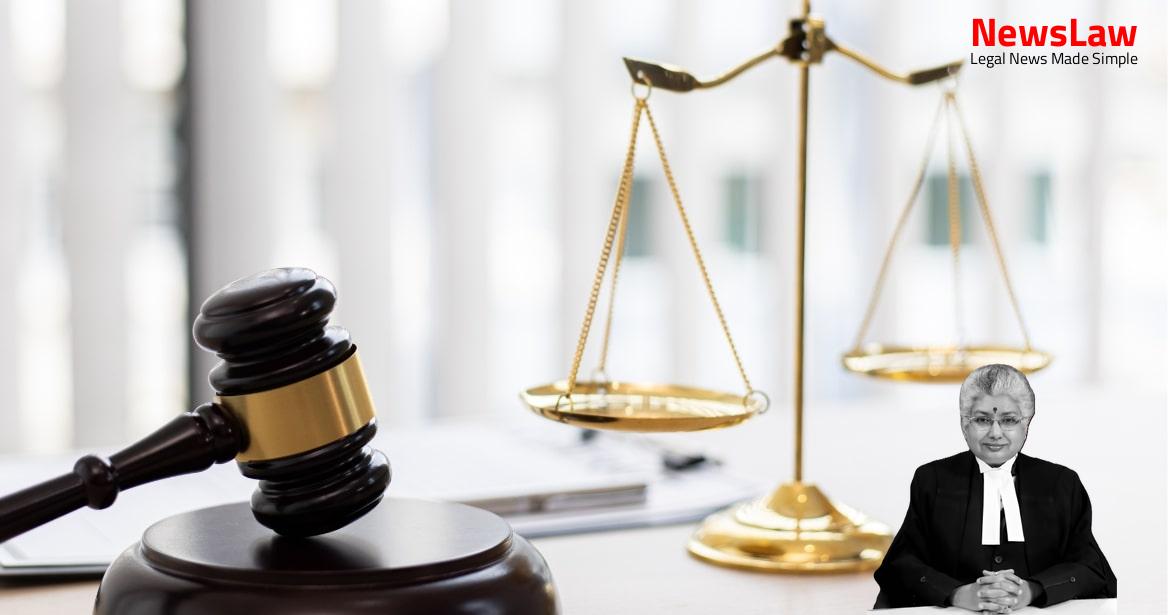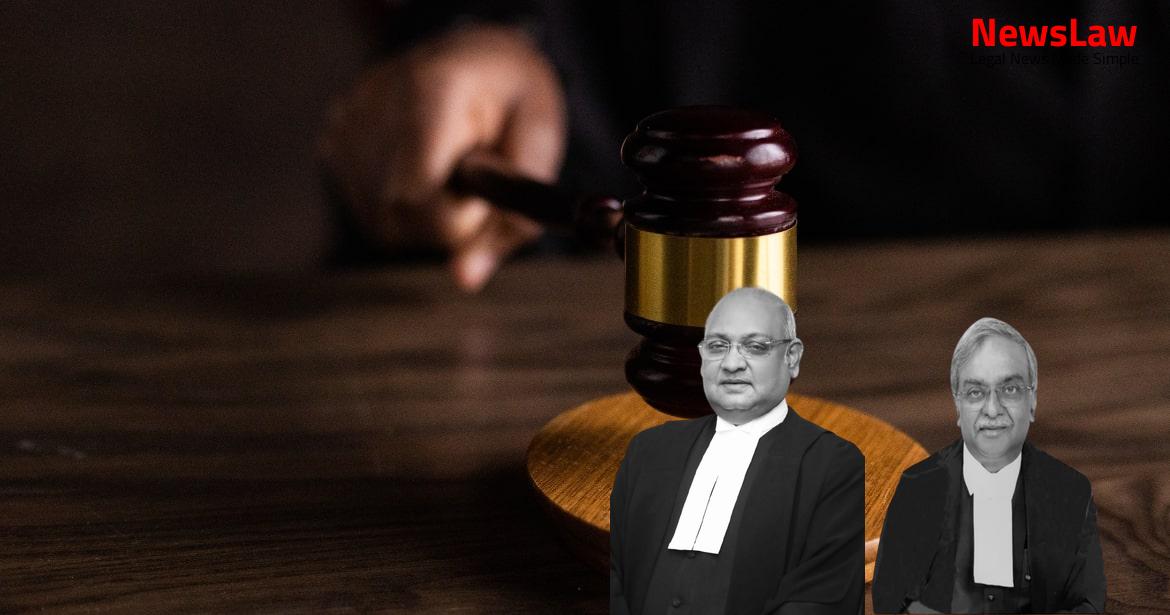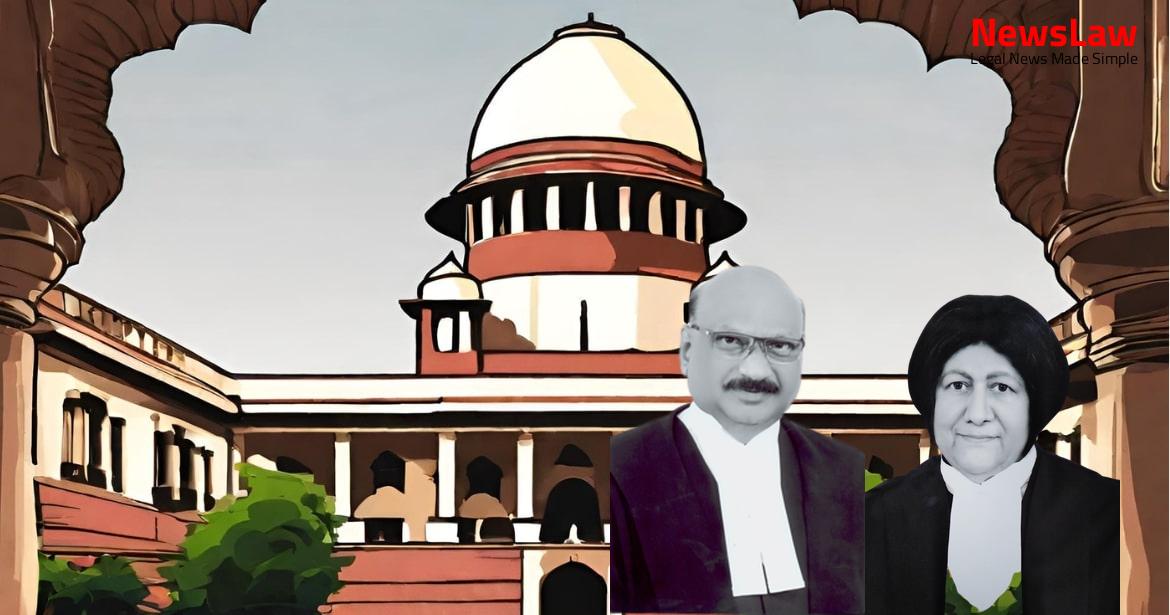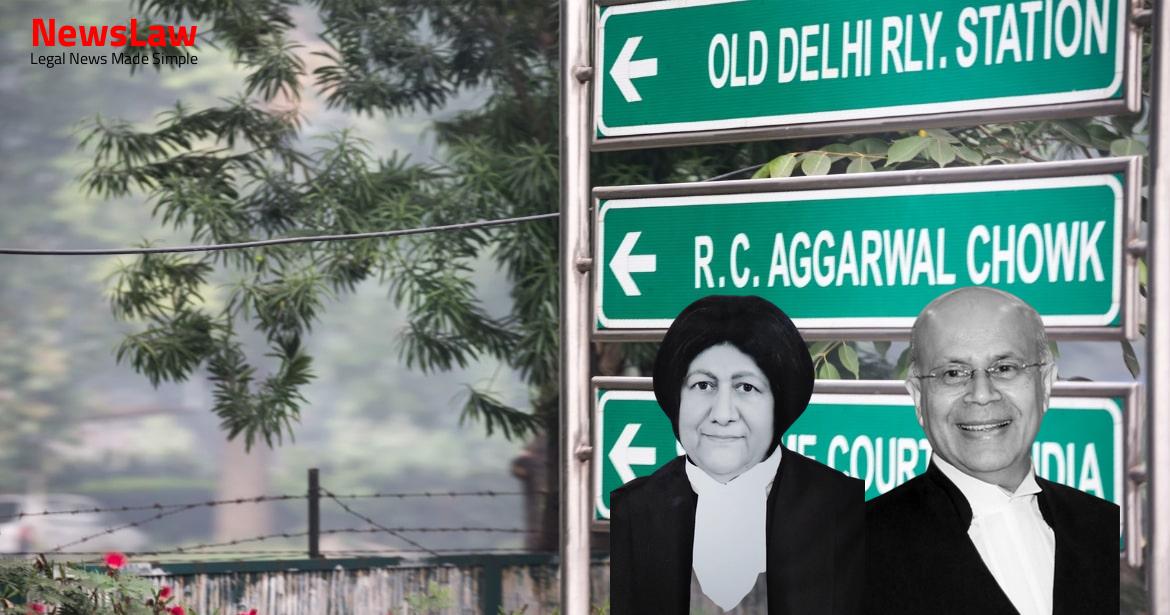In a significant ruling by the Supreme Court of India, a landmark judgement was delivered regarding the revocation of a maintenance order under the Protection of Women from Domestic Violence Act, 2005. The case involved crucial considerations pertaining to alteration, modification, or revocation of the order, impacting the rights of the parties involved. Learn more about the implications of this ruling and its relevance in legal jurisprudence.
Facts
- Appellant-wife filed petition under Section 12 of the Protection of Women from Domestic Violence Act, 2005
- Magistrate allowed the petition granting maintenance and compensation without respondent-husband presenting any evidence
- Respondent filed Criminal Appeal No.757/2020 which was dismissed due to delay
- Respondent filed application under Section 25 of the Act before Magistrate
- High Court allowed the appeal, remanded the matter to Magistrate for consideration with opportunity for both parties to present evidence
Also Read: High Court of Madhya Pradesh Reverses Judgment on Charges against Accused in Assault Case
Arguments
- Petitioner argues that the application is not for alteration, modification, or revocation of an order but for setting aside the order dated 23.02.2015.
- Plea for the dismissal of the application by the respondent and upholding the previous order.
- Petitioner contests the remanding of the matter to the Magistrate for consideration of the respondent’s application under Section 25 of the Act.
- Plea for setting aside the impugned orders and dismiss the respondent’s application.
- Argument that the respondent misrepresented her need for maintenance, justifying the application under Section 25 of the Act.
- Importance placed on the fact that the respondent had falsely claimed to be unemployed, impacting the maintenance order.
- Plea for revocation of the maintenance order and contention that the High Court and Appellate Court were right in directing the Magistrate to consider the application.
- Analysis of the arguments and facts of the case in relation to Section 25 of the Act by the Court.
- Discussion on the prayers sought by the respondent in the application under Section 25 of the Act and the lack of maintainability of certain prayers.
Also Read: Land Acquisition Dispute: High Court Judgment Reversed
Analysis
- The Act is applicable to every woman in India for effective protection of her rights in cases of domestic violence.
- Section 25(2) of the Act allows for alteration, modification, or revocation of any order made under the Act.
- The Magistrate can pass an appropriate order upon receiving an application from the aggrieved person or respondent if there is a change in circumstances.
- Protection orders under Section 18 are valid until the aggrieved person applies for discharge.
- The scope of Section 25(2) covers various orders including maintenance, residence, and protection.
- The exercise of jurisdiction under sub-section (2) of Section 25 of the Act cannot be for setting aside of an earlier order merely because the respondent seeks setting aside of that order.
- Revocation of an order under Section 12 of the Act cannot relate to a period prior to such an order being passed.
- A change in the circumstances must occur only after an initial order is made under Section 12 of the Act.
- The phrasing of the provision allows for factors like cost of living, income of the parties, etc., to be considered as a change in circumstances.
- Alteration, modification, or revocation of an order under the Act could operate from the date of the application being filed or as ordered by the Magistrate under Section 25(2) of the Act.
- The Magistrate must be satisfied that a change in circumstances has occurred to pass an order of alteration, modification, or revocation.
- The order for alteration, modification, or revocation operates prospectively and not retrospectively.
- A change in circumstances under the Act may be of either a pecuniary or other nature, justifying an increase, decrease, or revocation of the maintenance amount ordered.
- The application filed by the appellant seeking to set aside the earlier order dated 23.02.2015 for a refund of the amount paid has limitations due to the finality and merger of the said order with an appellate decision.
- The respondent’s prayers were not maintainable under sub-section (2) of Section 25 of the Act as they sought to set aside the original order and refund maintenance amounts paid prior to the order.
- Prayers seeking alteration, modification, or revocation of an order under Section 12 of the Act can only be for a period post the original order being made, not for periods prior to it.
- Applications for alteration, modification, or revocation under sub-section (2) of Section 25 of the Act must pertain to periods after the order under Section 12 of the Act was passed.
Also Read: Amendment of Pleadings in Smt. Suman Agarwal (Bindal) v. Smt. Katoribai
Decision
- The respondent did not participate in the proceedings before the learned Magistrate.
- The respondent belatedly filed an appeal before the Appellate Court which was dismissed.
- The appeal was dismissed on the ground of delay.
- The respondent did not choose to challenge the dismissal order before a higher forum.
- The orders of the High Court and the first Appellate Court are set aside.
- The application filed by the respondent is dismissed.
- Liberty is reserved for the respondent to file a fresh application under Section 25 of the Act.
- Any new application will be considered by the learned Magistrate based on set observations and merits.
- Revocation of the earlier order could be effective from the date of the new application or as ordered by the Magistrate.
- The appeal is allowed and disposed of accordingly.
- Pending applications, if any, are disposed of.
Case Title: S VIJIKUMARI Vs. MOWNESHWARACHARI C (2024 INSC 732)
Case Number: Crl.A. No.-003989-003989 – 2024



